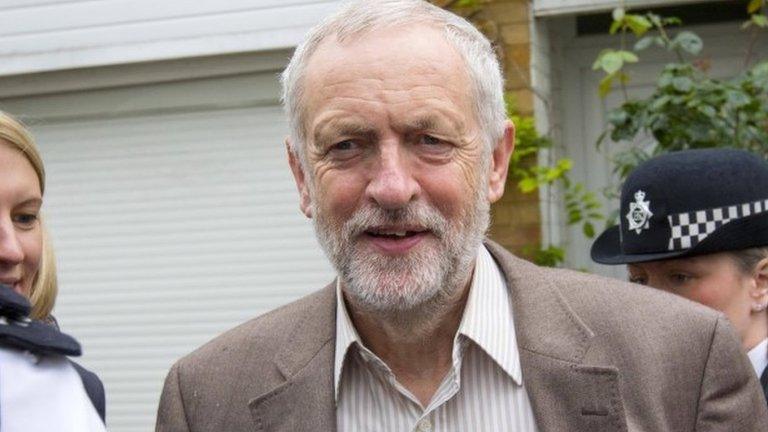UK suffers leadership gap in risky times
- Published
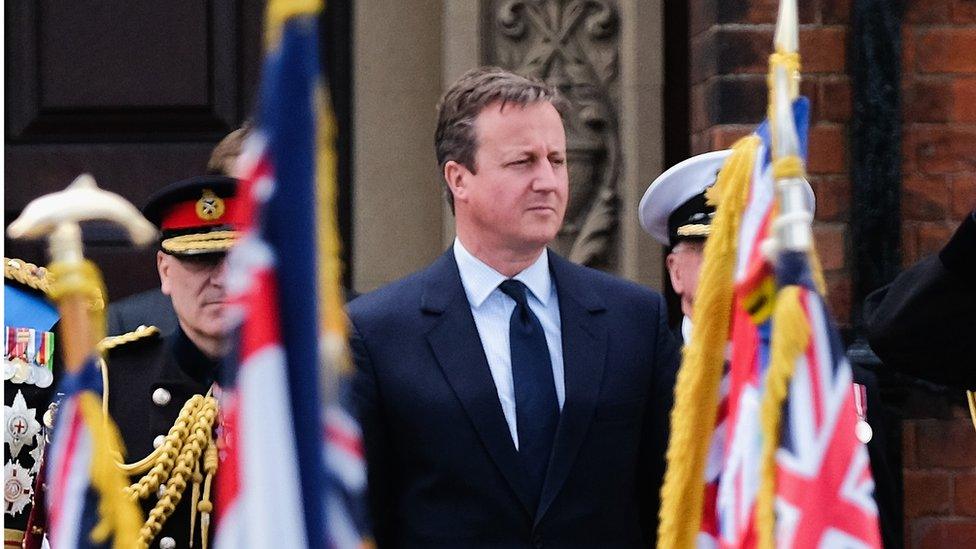
David Cameron is not going to negotiate the UK's exit
WANTED. For a small island heading to an unknown destination in dangerous times: Leadership.
The question is who will give it? Not our prime minister - for now that is. David Cameron says that is up to his successor - whoever he or she might be.
His friends are more brutal: it is the job of those who broke it to mend it.
Osborne: UK in a position of strength
Corbyn vows to fight for leadership
EU co-operation to 'intensify' - Johnson
Follow the latest developments on our live page
UK's EU referendum: All you need to know
What of them then? After a weekend of playing cricket and planning his Tory leadership bid, Boris Johnson emerged briefly for the cameras on Monday morning.
He wanted to dispel "confusion" about the rights of European migrants living here already, but he has still to offer anything like a concrete plan on how he would negotiate the post-Brexit future.
So, for now the questions: When do we leave the EU and on what terms? Who will do the negotiations? What will it mean for immigration, for trade, for travel, for the city, for agriculture, for those from the EU living here and Brits abroad? All have no answers - and none in prospect either.
This morning the chancellor did break his silence. He sought to calm the nerves in a statement from the Treasury, saying preparations have been made for turbulence in the markets so that, he said, we are equipped for whatever happens.
But he, too, insisted that the big decisions, including those on higher taxes and new spending cuts - the sort he warned before the vote - would have to wait for a new occupant of Number 10 and no doubt Number 11 as well.
George Osborne: "We are equipped for whatever happens"
We will hear more from David Cameron as he makes a Commons statement.
This you may think - particularly if you voted for Leave - is an unduly pessimistic view of what flows from what has been dubbed Independence Day for what was until last week the fifth largest economy in the world. After all aren't we in charge of our own destiny now?
Well, yes… and no.
Last Thursday's momentous vote was a vote to begin divorce proceedings. Or, if you like, to move out of the house we share with 27 other countries.
It did not, though, come with any plan - let alone an agreement - as to where we are moving next or what our relationship will be in future with those we used to share our life with.
No Plan B?
Asked a few days before the vote whether he had such a plan for the day after if the Leave campaign won Boris Johnson was brutally frank - in private at least. No was his answer.
He and other Leavers declared their hope that David Cameron would have one and would stay in office to implement it.
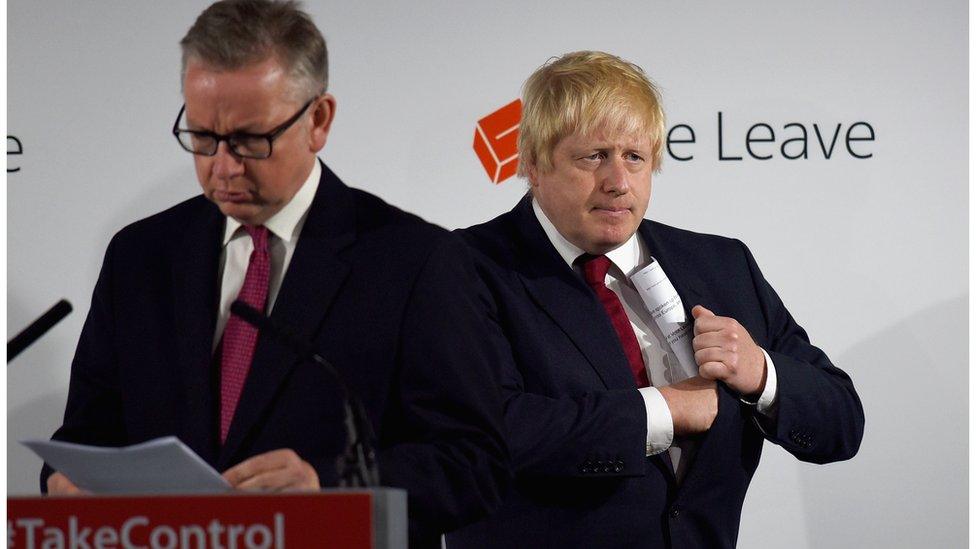
Boris Johnson says there is no rush to leave the EU
But Cameron was determined not to be the one tasked with clearing up a mess which, he believes, they created.
Besides he believes he would have no credibility doing so either at home - with the electorate who rejected his pleas to remain in the EU - or in Brussels - with leaders who listened when he assured them that he could and would win the referendum.
When he first proposed a referendum three years ago I asked the prime minister what his Plan B was if his renegotiation failed or he lost the referendum.
He refused to contemplate any such possibility. I asked him again during the general election campaign - he was no more willing to consider failure. The civil service were banned from making plans for Brexit.
'No vacuum'
So it is that this morning a lame duck leader and his former friend and close political ally, the visibly shell-shocked Michael Gove, will meet with the rest of the Cabinet to begin what we are told are initial discussions about the apparatus which will prepare for negotiations with our soon to be former partners in the EU.
In other words, they will discuss how a plan for what it is hoped will be an amicable separation could be drawn up and who might do it.
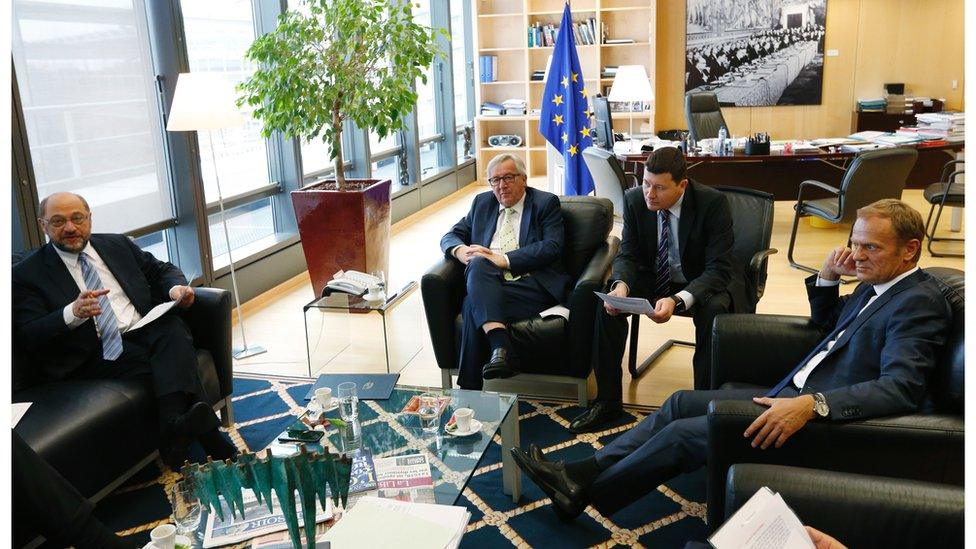
EU officials like Martin Schulz and Jean-Claude Juncker says divorce must be swift
As for the plan itself, let alone the filing of the divorce papers themselves, that will have to wait until a new prime minister is elected in the autumn - not, let us remember, by the electorate, but by Tory party members.
This, insist insiders, is not a vacuum. It is nothing more than a weekend pause after a bruising campaign with an outcome which no-one - on either side - expected.
It is best, they say, to take things slowly - one step at a time. Besides, add those who campaigned for Leave, what's the rush?
After all nothing actually needs to change in our relationship with the EU for two years - that's how long the rules of the European Club give us to negotiate Brexit.
It is they - the Europeans - who are in a hurry to quit - not us to get out.
Maybe. But that assumes that it is those gathered around the Cabinet table who are - to coin a phrase - in control. It may be, though, that markets and boardrooms demand swifter answers and, if they don't get them will move their money and the jobs that come with it.
It may also be that those who voted Leave anticipating a swift dividend in the form of lower immigration and more funds for the NHS might also become a little impatient if what will soon be seen as the new establishment fail to deliver just as the old establishment did.
The fallout from the biggest exercise in popular democracy has already been dramatic - claiming the scalp of a Prime Minister and, potentially, that of the opposition leader too.
It has, though, only just begun. The old order has been smashed.
It may be a very long time - not weeks, not months but years - before the shape of the new order and the answers to all those questions become clear.
- Published27 June 2016
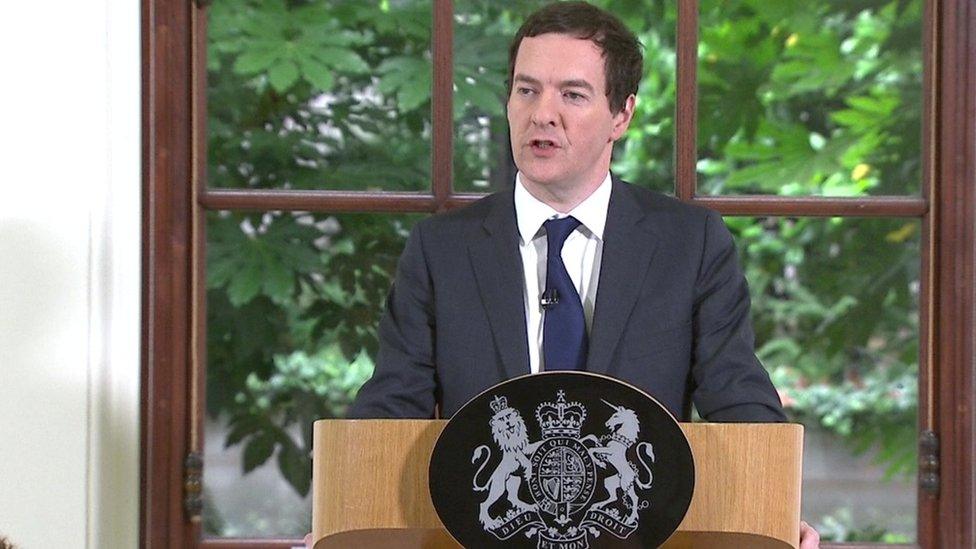
- Published27 June 2016
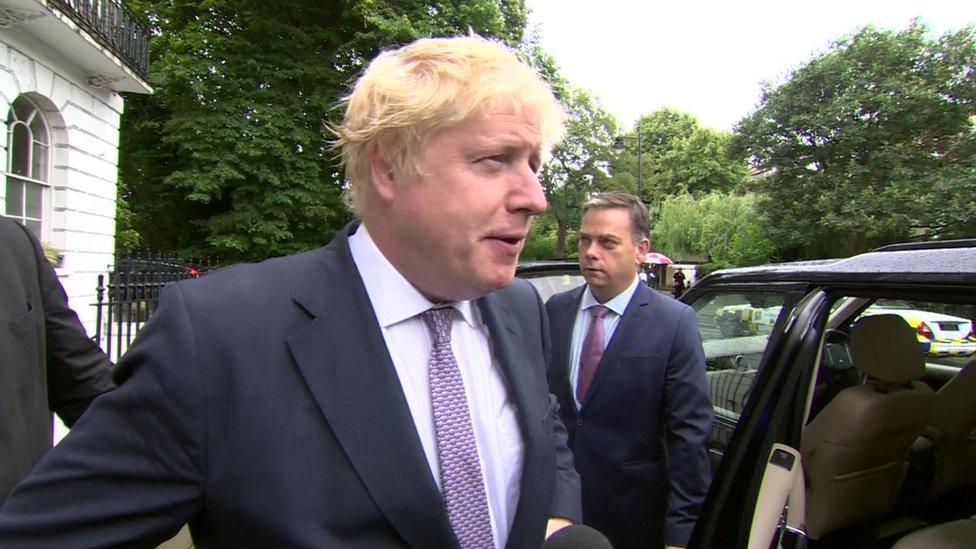
- Published27 June 2016
